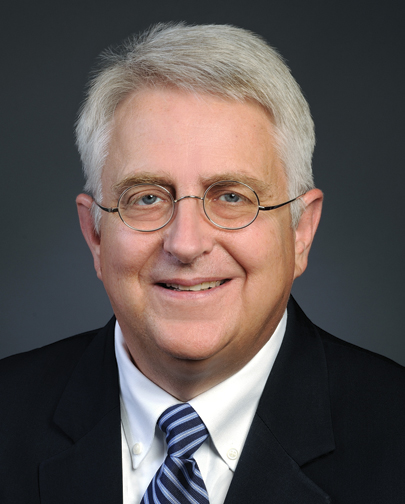 UMA Vice President of Legislative and Regulatory Affairs and Industry Relations COO Ken Presley Alexandria, Va. — Transportation and infrastructure are issues with bipartisan support, so the United Motorcoach Association (UMA) says it is cautiously optimistic that midterm election results could result in positive outcomes for member interests. That doesn’t mean there aren’t issues to watch, however, particularly in the area of mandates and regulations, revenue generation to pay for infrastructure investments and autonomous vehicles.
UMA Vice President of Legislative and Regulatory Affairs and Industry Relations COO Ken Presley Alexandria, Va. — Transportation and infrastructure are issues with bipartisan support, so the United Motorcoach Association (UMA) says it is cautiously optimistic that midterm election results could result in positive outcomes for member interests. That doesn’t mean there aren’t issues to watch, however, particularly in the area of mandates and regulations, revenue generation to pay for infrastructure investments and autonomous vehicles.
“Passenger transportation is a non-partisan issue and every elected official has an interest in assuring the bus and motorcoach companies in their district serve their constituents, and beyond,” said Ken Presley, UMA’s vice president of Legislative and Regulatory Affairs and Industry Relations COO. “It seems likely the new Congress will take up infrastructure funding and policy. We look forward to working with them and advocating on behalf of UMA members.”
UMA will continue to stress the critical role that members play in transporting people safely, efficiently, and economically, he said, and will also continue to engage on issues of importance to UMA members. Following is an early analysis prepared by Becky Weber, managing director of Prime Policy Group.
Infrastructure Funding
Democrats now control the House majority, and current Minority Leader Rep. Nancy Pelosi (D-CA) and likely next Speaker of the House has said that infrastructure will be a top priority for House Democrats. Incoming Chair of the House Transportation and Infrastructure Committee Rep. Peter DeFazio (D-OR) announced that he intends to begin work on infrastructure legislation in January and has already talked to the White House about it before the election. With multi-year reauthorizations for aviation and water resources programs finished this year, surface transportation programs would be the major driver for such a bill, Weber said.
In addition, the Fixing America’s Surface Transportation Act (FAST Act) which authorized highway and transit programs for the last five years, is due to expire in October of 2020 and could also provide the engine for an infrastructure bill.
This all is “absolutely newsworthy” right now for UMA, Weber says, particularly as Congress lays out a funding mechanism. “We have a motorcoach fuel tax exemption to protect, and if they move to a vehicle miles traveled (VMT) user fee, we will need to ensure comparable treatment” she said.
Surface Transportation Policy
On this topic, benefits may be mixed, according to Weber’s analysis.
The flip to a Democratic majority House will mean increased oversight of the Department of Transportation, especially in terms of grants, safety regulation and rollback of regulations. Under the current Republican administration—the Department has halted or rolled back more regulations than any other agency.
 House Democrats have been vigorously supportive of transit funding. UMA has encouraged members to partner with local transit authorities to receive more public/private partnership opportunities, Weber said, and thriving public transport keeps city streets unclogged enough for charter buses to freely transit during urban trips. However, UMA officials say they will need to continue to vigorously defend protections against unfair competition from public transit agencies in the provision of charter bus service and home-to-school transportation.
House Democrats have been vigorously supportive of transit funding. UMA has encouraged members to partner with local transit authorities to receive more public/private partnership opportunities, Weber said, and thriving public transport keeps city streets unclogged enough for charter buses to freely transit during urban trips. However, UMA officials say they will need to continue to vigorously defend protections against unfair competition from public transit agencies in the provision of charter bus service and home-to-school transportation.
A larger concern is the potential push for more regulation and mandates affecting the motor carrier industry, she said. UMA would fight, for example, against any revival of the effort to raise minimum insurance levels for commercial vehicles—something that would be crushing for industry newcomers. Many Democrats also support bills to mandate specific obstructive sleep apnea screening, testing and treatment regulations, which UMA believes is unnecessary since the condition is being adequately addressed by Department of Transportation-required physicals. UMA will need to be vigilant to defend a reasonable and deregulatory environment for our operators to continue to grow and thrive, she said.
Autonomous Vehicles
This is an issue to watch, one affected more by advancements in technology and testing than election results, Weber said. A bill has passed the House and is pending in the Senate that would preempt states from creating their own rules regarding autonomous automobiles so that the safety and regulatory scheme developed is consistent across the nation. The bills also address liability and safety issues. Likely, the bill would be followed by one addressing commercial motor vehicles, she said.
“We would need to be very engaged on a commercial autonomous vehicle bill, even if we could never in a million years imagine a fully autonomous motorcoach,” Weber said. “Maybe it would be more like an airplace where the coach gets significantly autonomous but still has a technologically savvy driver. . . Whether there was an election or not, this is an issue we’re going to have to get more educated and engaged on.”
Visit uma.org for more information.
[CD1118]
This article was originally published at busandmotorcoachnews.com/election-results-likely-to-keep-transportation-high-on-legislative-agenda/

